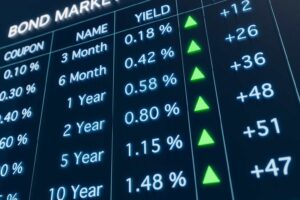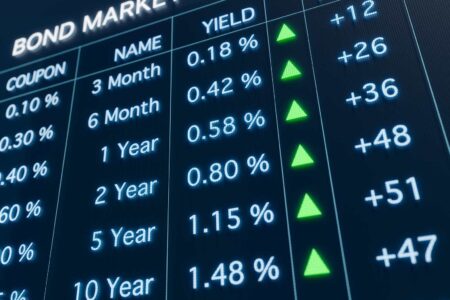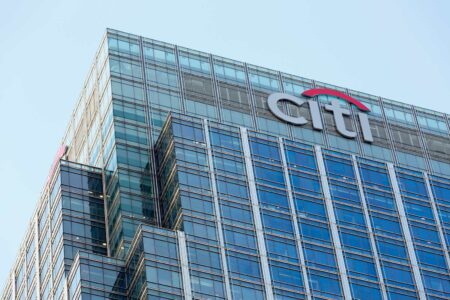Dear Baron Emerging Markets Fund Shareholder:
Baron Emerging Markets Fund® (the Fund) declined 7.35% (Institutional Shares) during the final quarter of 2024, while its primary benchmark, the MSCI Emerging Markets Index (the Benchmark), retreated 8.01%. The MSCI Emerging Markets IMI Growth Index (the Proxy Benchmark) declined 6.84% for the quarter. The Fund modestly outperformed the Benchmark while slightly lagging the Proxy Benchmark during a difficult quarter for non-U.S. equity returns. For the full year 2024, the Fund gained 7.90%, slightly outperforming the Benchmark while trailing the Proxy Benchmark, largely due to the Proxy Benchmark’s disproportionate exposure to Taiwan Semiconductor Manufacturing Company Limited (TSM). We were pleased with full-year results, as a solid second-half resulted in a return to outperformance against the Benchmark and peers for the year, and we remain cautiously optimistic that growth-oriented, non-U.S. equity strategies have reached an inflection point after a multi-year period of underperformance.
Table I.
Performance†
Annualized for periods ended December 31, 2024
| Baron Emerging Markets Fund Retail Shares1,2 | Baron Emerging Markets Fund Institutional Shares1,2 | MSCI Emerging Markets Index1 | MSCI Emerging Markets IMI Growth Index1 | |
|---|---|---|---|---|
| Three Months3 | (7.38)% | (7.35)% | (8.01)% | (6.84)% |
| One Year | 7.63% | 7.90% | 7.50% | 9.44% |
| Three Years | (4.90)% | (4.66)% | (1.92)% | (3.44)% |
| Five Years | 0.77% | 1.02% | 1.70% | 2.16% |
| Ten Years | 2.62% | 2.88% | 3.64% | 4.39% |
| Since Inception (December 31, 2010) | 3.25% | 3.51% | 1.97% | 2.85% |
|
Performance listed in the above table is net of annual operating expenses. Annual expense ratio for the Retail Shares and Institutional Shares as of December 31, 2023 was 1.37% and 1.11%, respectively. The performance data quoted represents past performance. Past performance is no guarantee of future results. The investment return and principal value of an investment will fluctuate; an investor’s shares, when redeemed, may be worth more or less than their original cost. The Adviser may waive or reimburse certain Fund expenses pursuant to a contract expiring on August 29, 2035, unless renewed for another 11-year term and the Fund’s transfer agency expenses may be reduced by expense offsets from an unaffiliated transfer agent, without which performance would have been lower. Current performance may be lower or higher than the performance data quoted. For performance information current to the most recent month end, visit BaronCapitalGroup.com or call 1-800-99-BARON. †The Fund’s historical performance was impacted by gains from IPOs and there is no guarantee that these results can be repeated or that the Fund’s level of participation in IPOs will be the same in the future. (1)The MSCI Emerging Markets Index Net (USD) is designed to measure equity market performance of large and mid-cap securities across 24 Emerging Markets countries. The MSCI Emerging Markets IMI Growth Index Net (USD) is a free float-adjusted market capitalization index designed to measure equity market performance of large, mid and small-cap securities exhibiting overall growth characteristics across 24 Emerging Markets countries. MSCI is the source and owner of the trademarks, service marks and copyrights related to the MSCI Indexes. The indexes and the Fund include reinvestment of dividends, net of foreign withholding taxes, which positively impact the performance results. The indexes are unmanaged. Index performance is not Fund performance. Investors cannot invest directly in an index. (2)The performance data does not reflect the deduction of taxes that a shareholder would pay on Fund distributions or redemption of Fund shares. (3)Not annualized. |
The principal catalyst driving global capital markets during the quarter was the U.S. election outcome, with the anticipated financial impact of Donald Trump’s campaign initiatives quickly being discounted. Markets anticipate immigration reform, an extension of U.S. tax legislation passed in 2017 with perhaps even lower corporate tax rates, cuts/efficiencies in domestic fiscal spending, and tariffs or other protectionist trade measures that would also reduce the U.S. current account deficit. Much of this policy mix would be dollar positive in the short term, and the dollar abruptly rallied roughly 6% to a two-year high from pre-election into the new year. Unlike 2016 when Trump’s victory was unexpected, betting sites were clearly presaging the outcome this time around, and in our view, the market was already pricing in a decent likelihood that Trump’s policies would be enacted. Further, Trump’s governing style and policy mix were much more of a mystery in late 2016, while in our view, the greater mystery today is whether Trump’s policies in a second term will actually live up to what the market has already discounted. Finally, relative multiples on U.S. and non-U.S. equities are very different today than when Trump was first elected, a fact that we believe sets up an attractive contrarian opportunity, particularly for longer-term and patient investors. We believe post-election market momentum may already be overdone, which we detail further in the Outlook section of this letter. We remain optimistic that emerging markets (EM) equities currently offer an attractive long-term entry point, with relative valuations and earnings expectations reaching fresh multi-decade lows in the aftermath of the U.S. presidential election, amid elevated investor skepticism. While returns on such equities have certainly lagged, we see multiple forward-looking catalysts that should enhance relative earnings growth potential, and as always, we are confident that our diversified portfolio of well-positioned and well-managed bottom-up investments can perform in the years ahead.
For the full year 2024, the Fund modestly outperformed the Benchmark, while underperforming our all-cap EM growth Proxy Benchmark. From a sector or theme perspective, strong stock selection in the Industrials sector, primarily driven by various investments in our sustainability/ESG (HD Korea Shipbuilding & Offshore Engineering Co., Ltd., HD Hyundai Heavy Industries Co., Ltd., and Contemporary Amperex Technology Co., Limited) and digitization (Full Truck Alliance Co. Ltd. (YMM) and InPost S.A. (OTCPK:INPOY)(OTCPK:INPOF)) themes, was the largest contributor to relative performance during the year. In addition, solid stock selection effect together with our overweight positioning in the Communication Services sector, owing to our India digitization holdings (Bharti Airtel Limited and Indus Towers Limited), also stood out as a key contributor during the period. Lastly, favorable allocation effect combined with good stock selection in the Materials and Consumer Discretionary sectors also bolstered relative results. Partially offsetting the above was weak stock selection effect in the Financials sector, particularly in our fintech disruption theme (Pine Labs Pte. Ltd., XP Inc. (XP), and Inter & Co Inc. (INTR)), and more broadly owing to a few other financial sector holdings in Indonesia (PT Bank Rakyat Indonesia (Persero) Tbk (OTCPK:BKRKY)(OTCPK:BKRKF)), Brazil (Banco BTG Pactual S.A. and B3 S.A. – Brasil, Bolsa, Balcao (OTCPK:BOLSY)(OTCPK:BOLSF)), and India (Bajaj Finance Limited and SBI Life Insurance Company Limited). In addition, adverse stock selection and our overweight positioning in the Consumer Staples sector, largely reflected in weakness across our EM consumer theme (Budweiser Brewing Company APAC Limited (OTCPK:BDWBF)(OTCPK:BDWBY), Wal-Mart de Mexico, S.A.B. de C.V. (OTCQX:WMMVY)(OTCPK:WMMVF), Kweichow Moutai Co., Ltd., and Tata Consumer Products Limited) also weighed on relative performance during the year.
From a country perspective, for calendar year 2024, strong stock selection in Korea was the largest contributor to relative performance. While Korean equities in general experienced a meaningful correction during the year (Korea down 23.4% in the Benchmark), we are pleased with the positive absolute returns and strong relative gains that were generated by our investments in the country. In particular, we remain excited about our Korea shipbuilding related holdings (HD Korea Shipbuilding and HD Hyundai Heavy) that are entering a multi-year growth cycle with attractive profitability metrics, while also benefiting from geopolitical tailwinds leading to increased collaboration with the U.S. Navy among other global defense related opportunities. In addition, our overweight positioning together with solid stock selection in India also stood out as a key contributor to relative performance. We remain excited about our investments in India as productivity enhancing economic reforms are kickstarting a virtuous investment cycle in the country and positioning India as the fastest growing large economy in the world this decade. Lastly, positive stock selection effect in Taiwan and Poland, and our lack of exposure to Saudi Arabia also bolstered relative results for the full year. Partially offsetting the above was adverse stock selection effect in China, which principally occurred prior to a vector change in monetary, fiscal, and regulatory support measures in late September. With China’s express intent to further support its economy into 2025, we anticipate a further broadening of the rally that should especially benefit the private sector growth stocks that we typically invest in. Lastly, our overweight positioning combined with adverse stock selection in Brazil, mostly via our fintech disruption theme, was also a notable detractor during the year. For the fourth quarter, the Fund modestly outperformed the Benchmark, while slightly trailing the Proxy Benchmark. Solid stock selection effect in Korea and China were the key contributors to relative performance during the period. While China was the largest detractor for full-year 2024, we are encouraged by our performance in the fourth quarter and anticipate a further broadening of the rally in China (as discussed above) to benefit many of our holdings going forward. India, after being our largest contributor to relative performance through the September quarter, partially retraced prior period gains owing to a near-term slowdown in economic growth and related earnings weakness, making it the largest offsetting detractor during the fourth quarter. We believe the current economic slowdown is primarily due to a delay in government capex spending activity, which in turn was principally related to mid-year elections, and we expect a re-acceleration to become evident in the coming quarters. Our lack of exposure to Saudi Arabia and underweight positioning in the United Arab Emirates (UAE) also weighed on relative results during the quarter. From a sector or theme perspective, solid stock selection effect in Industrials and Health Care contributed the most to relative results. Our underweight positioning combined with good stock selection in the Materials sector also bolstered relative performance. Broadly offsetting the above was adverse stock selection effect in Financials and Real Estate.
Top Contributors to Performance
Table II.
Top contributors to performance for the quarter ended December 31, 2024
| Contribution to Return (%) | |
|---|---|
| Taiwan Semiconductor Manufacturing Company Limited | 0.74 |
| HD Hyundai Heavy Industries Co., Ltd. | 0.45 |
| Kaynes Technology India Limited | 0.37 |
| Full Truck Alliance Co. Ltd. | 0.36 |
| HD Korea Shipbuilding & Offshore Engineering Co., Ltd. | 0.22 |
Semiconductor giant Taiwan Semiconductor Manufacturing Company Limited (TSMC) contributed in the fourth quarter due to a cyclical recovery in semiconductors and significant incremental demand for AI chips. We retain conviction that TSMC’s technological leadership, pricing power, and exposure to secular growth markets, including AI/high-performance computing, automotive, 5G, and internet of things, will allow the company to sustain strong double-digit earnings growth over the next several years.
HD Hyundai Heavy Industries Co., Ltd. is the world’s largest shipbuilder based on orderbook size and the global leader in high-end vessels including liquified natural gas (LNG)-powered ships. Shares rose on stronger-than- expected quarterly results, including margin growth enhanced by higher pricing and lower raw materials costs and strong year-to-date newbuild ship order demand and pricing. We remain shareholders. Hyundai Heavy’s vertically integrated business model differentiates it from peers, and it should be the leading beneficiary of decarbonization of shipping. The company has technological leadership and a dominant market position in eco-friendly LNG dual-fueled ships as well as first mover advantage in next-generation ammonia, methanol, and hydrogen shipbuilding. We expect tightening international maritime carbon emission regulations to drive much higher demand for LNG fuel-propelled ships and carbon-free ammonia-fueled ships.
Kaynes Technology India Limited is a leading electronics manufacturing service player in India serving the automotive, industrial, railway, medical, and aerospace and defense industries. Shares were up in the quarter, driven by robust sales and profitability growth. We believe Kaynes is well positioned to benefit from the government’s Make in India initiative, which encourages domestic manufacturing of electronic components by providing attractive tax subsidies and manufacturing infrastructure. We are excited about Kaynes’ recent development of its outsourced semiconductor assembly and test facility, which we believe represents significant incremental growth opportunity in the medium term. We expect the company to deliver 40% to 45% compounded EBITDA growth over the next three to five years.
Top Detractors from Performance
Table III.
Top detractors from performance for the quarter ended December 31, 2024
| Contribution to Return (%) | |
|---|---|
| Swiggy Limited | -0.73 |
| Alibaba Group Holding Limited (BABA)(OTCPK:BABAF) | -0.55 |
| Samsung Electronics Co., Ltd. (OTCPK:SSNLF) | -0.46 |
| Localiza Rent a Car S.A. (OTCQX:LZRFY) | -0.38 |
| SBI Life Insurance Company Limited | -0.33 |
Swiggy Limited is India’s leading food delivery platform with a roughly 45% market share. Shares detracted during the quarter. Although the stock increased on robust sales growth and improving profitability after Swiggy’s IPO in November, the company went public at a price lower than our private investment. We retain conviction in Swiggy, as we believe India’s food delivery industry is still in its infancy and will continue to scale over the next several years, driven by a growing middle class, rising disposable income, higher smartphone penetration, and a structural shift in consumer preference to a technology-savvy younger population.
Alibaba Group Holding Limited is the largest retailer and e-commerce company in China. Alibaba operates shopping platforms Taobao and Tmall as well as businesses in logistics, local services, digital media, and cloud. Shares fell on continued weakness in core domestic commerce growth. Quarterly results were roughly in line with expectations, with relative strength in profitability, but the timing for acceleration in core gross merchandise value is still unclear. We retain conviction that Alibaba is well positioned to benefit from China’s ongoing growth in online commerce and cloud in China, though competitive market concerns remain.
Shares of South Korean conglomerate Samsung Electronics Co., Ltd. decreased during the quarter due to mixed execution in its DRAM and NAND technology development and investor concerns about a potential cyclical peak in memory prices. We are confident Samsung will remain a key beneficiary of long-term growth in semiconductor demand and a global leader in memory, 5G smartphones, and semiconductor foundry services.
Portfolio Structure
Table IV.
Top 10 holdings as of December 31, 2024
| Percent of Net Assets (%) | |
|---|---|
| Taiwan Semiconductor Manufacturing Company Limited | 10.5 |
| Tencent Holdings Limited (OTCPK:TCEHY)(OTCPK:TCTZF) | 4.8 |
| HD Korea Shipbuilding & Offshore Engineering Co., Ltd. | 3.0 |
| Swiggy Limited | 2.6 |
| Alibaba Group Holding Limited | 2.5 |
| Bharti Airtel Limited | 2.5 |
| Trent Limited | 2.3 |
| Full Truck Alliance Co. Ltd. | 2.2 |
| InPost S.A. | 2.1 |
| Contemporary Amperex Technology Co., Limited | 2.1 |
Table V.
Percentage of securities by country as of December 31, 2024
| Percent of Net Assets (%) | |
|---|---|
| India | 28.7 |
| China | 26.6 |
| Taiwan | 14.5 |
| Korea | 12.7 |
| Brazil | 5.0 |
| Poland | 2.9 |
| Philippines | 1.6 |
| Peru | 1.5 |
| South Africa | 1.3 |
| Mexico | 1.3 |
| Hong Kong | 1.3 |
| Indonesia | 0.8 |
| United Arab Emirates | 0.7 |
| Argentina | 0.4 |
| Spain | 0.4 |
| Russia | 0.0* |
* The Fund’s exposure to Russia was less than 0.1%.
Exposure by Market Cap: The Fund may invest in companies of any market capitalization, and we have generally been broadly diversified across large-, mid-, and small-cap companies, as we believe developing world companies of all sizes can exhibit attractive growth potential. At the end of the fourth quarter of 2024, the Fund’s median market cap was $12.8 billion, and we were invested 49.5% in giant-cap companies, 35.4% in large-cap companies, 14.1% in mid-cap companies, and 0.9% in small- and micro-cap companies, as defined by Morningstar, with the remainder in cash.
Recent Activity
During the fourth quarter, we added a few new investments to existing themes while also increasing exposure to several positions that we established in earlier periods. We continue our endeavor to add to our highest conviction ideas.
We were busy adding to our digitization theme by initiating positions in S.F. Holding Co., Ltd. (SF), MercadoLibre, Inc. (MELI), and Talabat Holding plc. SF is Asia’s largest logistics provider and a dominant leader in China, particularly in premium express delivery. Asia is the largest, fastest growing, and one of the most fragmented logistics markets globally. With its direct operations model, comprehensive logistics offerings, and the largest air cargo fleet in Asia, the company is well positioned to benefit from the secular trend of Chinese enterprises expanding overseas, particularly within Asia. The full opening of its Ezhou Airport in China, Asia’s only dedicated cargo hub, has further strengthened SF’s moat in both domestic and international markets. We also see a multi-year margin expansion runway, with annual improvements of 20 to 30bps in the next three years, driven by improved asset utilization from its multi-network integration initiatives, economies of scale, operational optimization, and reduced capital intensity. We expect SF to achieve 20% compound earnings growth over the next three years, with upside potential complemented by its consistent shareholder returns policy.
MercadoLibre operates the largest digital commerce ecosystem in Latin America, with a presence in 18 countries across the region. The company offers a comprehensive suite of e-commerce and digital financial services to consumers and merchants. Since its launch in 1999, MercadoLibre has grown to become the largest e-commerce player in the region, leveraging its first mover advantage and early investments in logistics to provide a superior shopping experience to customers. Using the first-party data generated through its platform, it has built a successful fintech offering centered around payments, credit, and other financial products serving nearly 60 million active monthly users. The company’s growth prospects are tied to the secular trends of increasing e-commerce and banking penetration in Latin America, which remain low compared to other developed and emerging markets. Despite its success to date, we see ample opportunities for MercadoLibre to scale in areas such as advertising, financial services, and logistics fulfillment. We believe MercadoLibre’s competitive moat is secure in these growing industries given its scale, local knowledge, data insights, and the synergistic relationship of its ecosystem.
During the quarter, the Fund participated in the IPO of Talabat. The company is the leading food, grocery, and retail delivery platform in the MENA region, with operations in the UAE, Kuwait, Qatar, Bahrain, Oman, Jordan, Egypt, and Iraq. As of September 2024, Talabat had more than six million active customers, over 65,000 active partners, and in excess of 119,000 active riders, making it the largest platform in the region, with the highest number of orders and largest segment share. The company operates in attractive markets where high discretionary income and relatively low cost of labor drive a wide gap between average order values and delivery costs. This leads to margins that are several turns higher relative to global peers. The food and grocery delivery industries are largely underpenetrated in the region, suggesting there is a long runway for growth and room for multiple players to operate. As the largest player, Talabat can leverage its breadth and scale to drive more attractive unit economics and grow its market share. In addition, the company has the potential to scale advertising revenue from a low base, which can increase or help protect margins over time. In summary, we are optimistic regarding Talabat’s growth and profitability outlook.
Adding to our global security/supply chain diversification theme, we initiated a position in Hanwha Systems Co., Ltd., a leading South Korean defense enterprise that develops high-tech systems including tactical communication, radar, naval combat, and space solutions systems. We expect the company to benefit from an increase in international defense budgets following Russia’s invasion of Ukraine and other geopolitical conflicts. In addition, we also anticipate an increase in demand for aircraft and naval combat systems as countries boost their budgets to modernize their fleets. The Korea defense industry is particularly well positioned, in our view, to gain market share in export markets, given cost-effective supply chains and fast delivery times.
Finally, we added to several of our existing positions during the quarter, most notably Contemporary Amperex Technology Co., Limited, Bajaj Finance Limited, JD.com, Inc. (JD)(OTCPK:JDCMF), HDFC Bank Limited (HDB), Tencent Holdings Limited, Kingdee International Software Group Company Limited (OTCPK:KGDEF)(OTCPK:KGDEY), and Cummins India Limited. During the quarter, we also exited positions in PDD Holdings Inc. (PDD) and Hyundai Rotem Company due to uncertainties over corporate governance, durability of earnings growth, and/or competitive positioning going forward.
Outlook
In our third quarter letter, we posited that the combination of a Fed easing cycle, Japanese interest rate normalization, and enhanced stimulus, liquidity, and property/financial sector support in China had likely triggered a bottom in EM and international equity relative performance. While we noted that the upcoming U.S. election presented risks to non-U.S. equities, we cautioned that most of these risks were reasonably well understood and discounted after a multi-year, relative bear market. Not unexpected, and similar to 2016, the immediate reaction to Trump’s victory was a strong U.S. dollar rally, while associated investor enthusiasm towards U.S. equities more than reversed prior quarter underperformance and powered U.S. equity relative multiples to multi-decade highs. Unlike 2016, when non-U.S. equities were priced at the long-term median relative earnings multiple prior to Trump’s unexpected win, this time EM and international equities were already trading at a 20-year low, with post-election momentum driving such equities in particular to a record discount notwithstanding the fact that Trump was favored to win by the real-money oddsmakers. As we enter 2025, U.S. equities trade at approximately 1.8 times the multiple of EM equities, or roughly 21 times forward earnings versus 12 times for EM, suggesting to us that the horse of U.S. exceptionalism has already left the barn, and we maintain that there is likely more upside than downside in non-U.S. relative performance looking forward from here.
Taking the 2016 case study a bit further, we note that the U.S. dollar index (DXY) rallied roughly 5% in the immediate aftermath of that election (in a nearly identical pattern to the 6% rally from Nov. 5, 2024 to Jan. 2, 2025), topping in early January and abruptly reversing the entire gain on the way to a 14% decline from the post-election peak by early 2018. In 2017, EM equities rallied 37.3%, while international equities appreciated 27.2%, both far exceeding the 21.8% return of U.S. equities. Given the larger initial discount now, and catalysts noted above, we would not be surprised to see a similar relative scenario unfold in the coming quarters, particularly if the Trump administration prioritizes domestic immigration and taxes over protectionist trade policy and tariffs in the initial months, perhaps over concerns of stoking politically sensitive inflation. Further, potential military/ geopolitical de-escalation or evidence that threats of tariffs would be used as negotiating leverage could trigger a dramatic reduction in risk premium, particularly benefitting non-U.S. assets and currencies, while any confirmation of recent press speculation that Trump may temper campaign rhetoric when transitioning to actual governing would also likely spark some mean reversion in relative performance and narrow the current historic premium attributed to U.S. equities.
Moving to fundamentals and earnings outlook, we remain constructive regarding the outlook for improving relative earnings growth in EM jurisdictions over the intermediate term. India continues to ride a wave of productivity and secular growth, and we continue to expect sustainable double-digit earnings gains across the economy, with of course considerably greater potential for the quality leaders and innovators that we own. India’s rapidly rising weight within the Benchmark is enhancing the growth potential of the EM asset class on its own. As we have discussed in recent letters, Taiwan (and Korea, to a lesser extent) has many strategically important constituents benefitting from the accelerating growth of AI, advanced computing, leading edge semiconductor design/manufacturing and data center deployment, and we have focused our resources and added exposure here over the past year. China, while still challenged by the property sector slowdown and geopolitical shifts, has recently increased stimulus and support efforts, demonstrating a will and commitment to support economic growth, consumption, and financial stability, which we believe is likely to result in improved investor perception and declining risk premium. In addition to the extensive support measures outlined in our previous letter, during the fourth quarter several fresh initiatives were announced, including an RMB 10 trillion local government debt swap program, a higher fiscal deficit target for 2025, a doubling of funds for the consumer goods trade-in program, and a civil servant wage hike, alongside quite dovish language suggesting a more accommodative regulatory environment and posture towards the private sector. We maintain our view that the policy pivot last September marks a key inflection point, and while some observers are looking for greater transparency and details, we believe leadership is holding back firepower and the makings of an “all-in” signal should the Trump administration launch aggressive trade measures early in the new term. In our view, markedly improved dividend and share repurchase programs are rewarding patience, and we are now seeing some green shoots regarding property transactions, consumption, and forward- looking earnings improvement. We remain slightly underweight this jurisdiction and are cautiously optimistic regarding the potential for a change in market sentiment. Korea was the largest source of outperformance for our strategies in 2024 – entirely driven by bottom-up stock selection and in particular by our shipbuilding/defense/global security concentration. We remain quite enthusiastic regarding our investments here, and notwithstanding the recent political turmoil, we see this jurisdiction as perhaps the most likely self-help story in the asset class with considerable upside on any improvement in sentiment. Korea is penalized dearly for a poor corporate governance record, a good portion of which has evolved from misguided policy; a world-leading inheritance tax incents the Chaebol-class to manipulate the value of or restructure their publicly traded holdings, often to the detriment of minority shareholders. Ironically, we see the recent political events, impeachment, and likely change in leadership party as a potential positive catalyst, as the liberal-leaning party may actually take the harder line against Chaebol resistance to governance reform. Finally, Brazil’s currency and equity markets suffered a marked decline in the recent quarter in response to President Lula’s softening on fiscal discipline and fears that his populist tendencies will remain unrestrained in the year ahead that precedes the next presidential election. While we are disappointed in the “miss versus fiscal expectation,” we also recognize it as a move of desperation as Lula’s approval rating has fallen to a record low for this term, and a longer-term view would suggest increasing odds of a regime change in 2026, which would likely trigger a major reduction in risk premium and substantial upside for Brazil’s currency and equities. We remain approximately market weight and see very attractive risk/reward for our holdings in this market.
We look forward to what we anticipate will likely be an exciting and volatile year ahead, one that we suspect will offer many intriguing investment opportunities for long-term investors.
Thank you for investing in the Baron Emerging Markets Fund.
Sincerely,
Michael Kass, Portfolio Manager
|
The performance data quoted represents past performance. Past performance is no guarantee of future results. The investment return and principal value of an investment will fluctuate; an investor’s shares, when redeemed, may be worth more or less than their original cost. The Adviser waives and/or reimburses or may waive or reimburse certain Funds expenses pursuant to a contract expiring on August 29, 2035, unless renewed for another 11-year term and the Funds’ transfer agency expenses may be reduced by expense offsets from an unaffiliated transfer agent, without which performance would have been lower. Current performance may be lower or higher than the performance data quoted. For performance information current to the most recent month end, visit BaronCapitalGroup.com or call 1-800-99-BARON. Investors should consider the investment objectives, risks, and charges and expenses of the investment carefully before investing. The prospectus and summary prospectuses contain this and other information about the Funds. You may obtain them from the Funds’ distributor, Baron Capital, Inc., by calling 1-800-99-BARON or visiting BaronCapitalGroup.com. Please read them carefully before investing. Risks: All investments are subject to risk and may lose value. Investors should consider the investment objectives, risks, and charges and expenses of the investment carefully before investing. The prospectus and summary prospectus contain this and other information about the Funds. You may obtain them from its distributor, Baron Capital, Inc., by calling 1-800-99-BARON or visiting BaronCapitalGroup.com. Please read them carefully before investing. Risks: In addition to the general stock market risk that securities may fluctuate in value, investments in developing countries may have increased risks due to a greater possibility of: settlement delays; currency and capital controls; interest rate sensitivity; corruption and crime; exchange rate volatility; and inflation or deflation. The Fund invests in companies of all sizes, including small and medium-sized companies whose securities may be thinly traded and more difficult to sell during market downturns. The Fund may not achieve its objectives. Portfolio holdings are subject to change. Current and future portfolio holdings are subject to risk. The discussions of the companies herein are not intended as advice to any person regarding the advisability of investing in any particular security. The views expressed in this report reflect those of the respective portfolio manager only through the end of the period stated in this report. The portfolio manager’s views are not intended as recommendations or investment advice to any person reading this report and are subject to change at any time based on market and other conditions and Baron has no obligation to update them. This report does not constitute an offer to sell or a solicitation of any offer to buy securities of Baron Emerging Markets Fund by anyone in any jurisdiction where it would be unlawful under the laws of that jurisdiction to make such offer or solicitation. BAMCO, Inc. is an investment adviser registered with the U.S. Securities and Exchange Commission (SEC). Baron Capital, Inc. is a broker-dealer registered with the SEC and member of the Financial Industry Regulatory Authority, Inc. (FINRA). |
Original Post
Read the full article here












